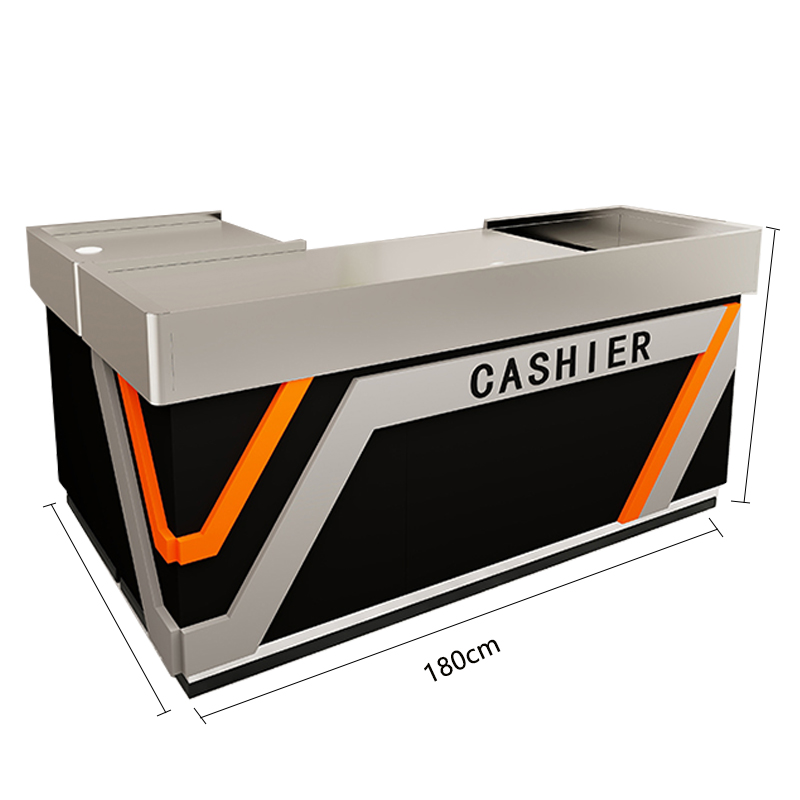
-
 National service hotline
National service hotline
- 400-082-1188
- How to enhance the attractiveness of products on scattered shelves
- What are the advantages of convenience store checkout counters
- What is the space utilization rate of the double-sided shelves in Nakajima
- Where is the stability of single-sided shelves against the wall reflected
- What are the display designs of steel and wood shelves
What is the function of a cash register
source:www.juren.top | Release time:2025年05月05日1. Transaction settlement
Payment function: This is the most important function of the cash register. After customers purchase goods or services, they make payments through cash, bank cards, mobile payments, and other methods at the cash register. The cashier is responsible for collecting the payment and making changes to ensure the accuracy of the transaction amount.
Pricing and Settlement: The cashier system equipped at the checkout can accurately price goods or services, quickly calculate the total amount that customers should pay by scanning product barcodes or entering relevant information, and handle various promotional activities, discount offers, member points, etc., providing customers with the correct settlement amount.
2. Product management
Sales records: The cashier system automatically records detailed information about each sales transaction, including product name, quantity, price, sales time, etc. These data are very important for merchants to understand the sales situation of products, inventory management, and analyze sales trends. They help merchants adjust their product inventory and purchase plans reasonably.
Inventory update: When goods are sold through the cashier, the system will update inventory information in real time, reduce the inventory quantity of corresponding goods, ensure the correctness of inventory data, avoid inventory backlog or shortage, and improve the efficiency of inventory management.
3. Customer Service
Providing invoices: Based on customer needs, the cashier can issue invoices to customers as proof of purchase of goods or services, facilitating reimbursement and after-sales service.
Handling returns and exchanges: Some cash registers also have the function of handling product returns and exchanges. Cashiers need to handle the return and exchange procedures for customers according to the relevant regulations of the merchant, refund or supplement the corresponding amount, solve customer problems, and improve customer satisfaction.
4. Security precautions
Cash management: The cash register is an important link in the cash flow of commercial premises, requiring proper management of cash, including storage, safekeeping, and deposit into banks, to prevent cash theft, loss, or errors and ensure the safety of merchants' funds.
Loss prevention supervision: Cashiers need to pay attention to the integrity of the goods and whether the packaging is damaged during the payment process, in order to prevent customers from carrying unpaid goods or causing product damage. At the same time, they should cooperate with the security measures of the mall to play a certain role in loss prevention supervision.
5. Information dissemination
Promotion: The checkout counter is usually a place where customers stay during the shopping process. Merchants can use this location for promotion, such as placing promotional posters, promotional activity flyers, etc., to convey the merchant's discount information, new product recommendations, etc. to customers, attract their attention, and promote additional consumption.
Member promotion: Cashiers can introduce the merchant's membership system to customers when they check out, encourage them to apply for membership cards, increase customer loyalty and return rates through membership points, discounts, and other methods, and also help merchants collect customer information for marketing.
Prev:
What are the material characteristics of the shel…
Next:
What are the advantages of IKEA tobacco and wine …

 Micro signal:
Micro signal:


 official account
official account
 applet
applet
 wechat
wechat
 contact
contact
 phone
phone